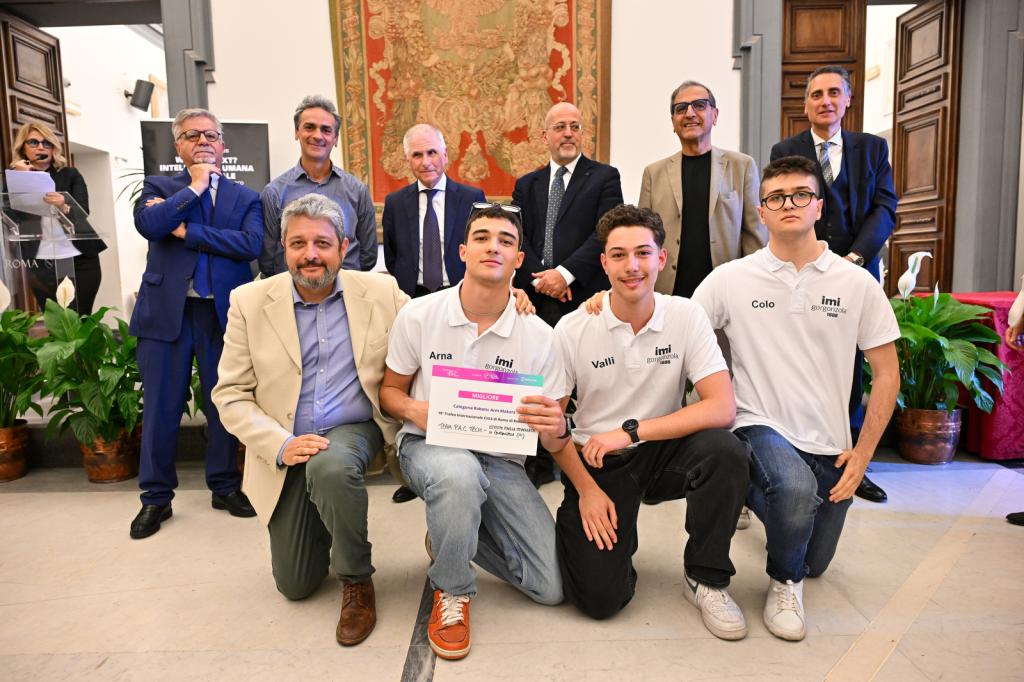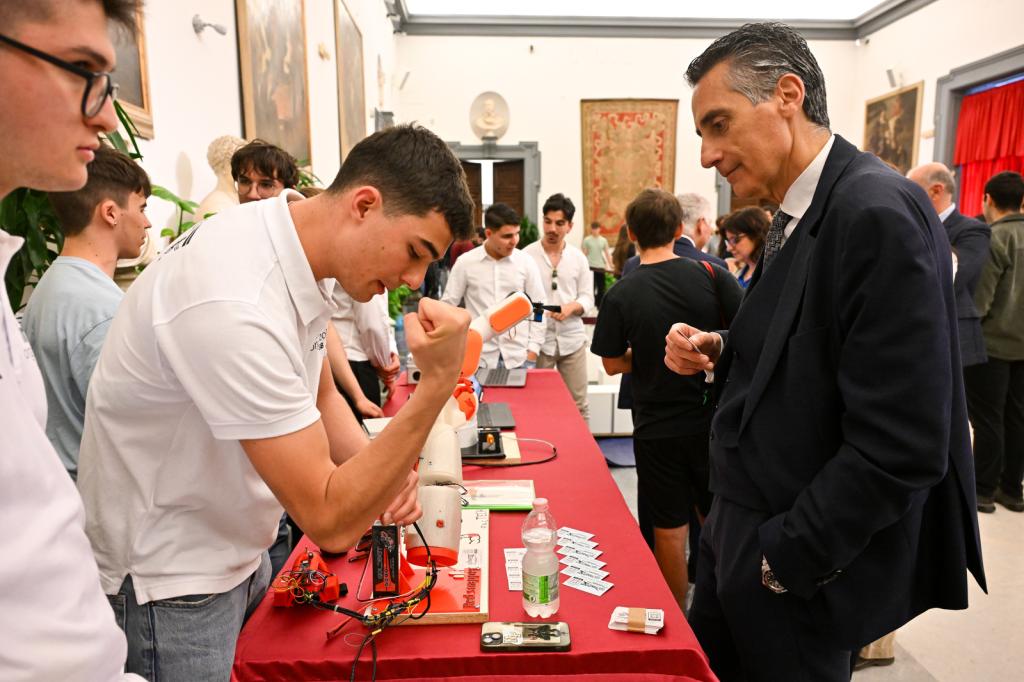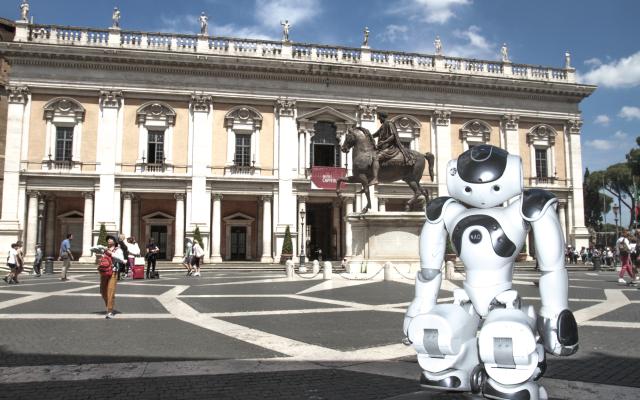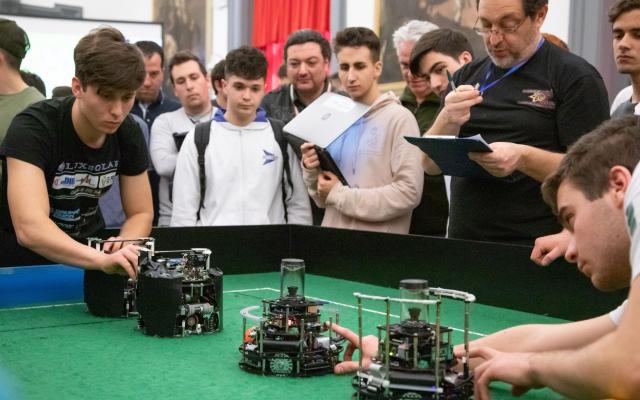At RomeCup 2025, smart prosthetics for inclusive robotics
An independent venture with an unexpected ally. RedSnapper Mk2 is an experimental prosthetic arm designed entirely by three 17-year-olds from the Maria Immacolata Institute in Gorgonzola (Milan), without the support of a technology or robotics teacher. Francesco Colombo, Mattia Arnaldi and Daniele Vallicelli worked completely independently, with only the “educational complicity” of Luigi Ronciglia, a science teacher who was not their curriculum teacher, who accompanied them on their journey with respect and trust, supporting them discreetly and leaving them full control of the project, like an invisible director, always present but behind the scenes.
With RedSnapper Mk2, the students of the institute led by headteacher Anna Barzaghi won the Robotic Arm Makers challenge at the RomeCup 2025. An ambitious project that combines technical innovation, attention to fragility and social vision. Entirely 3D-printed and animated by servomotors, Mk2 integrates electromyographic sensors to recognise residual muscle movement in the arm and replicate it on the prosthesis. It is equipped with a gyroscope, autonomous battery, Arduino board, voice commands and a “mirroring” function that allows the movements of the healthy arm to be copied and reproduced on the robotic limb. The device is designed for medical and rehabilitation applications, with the aim of replacing or enhancing compromised functions.
‘This is the first year we have participated in the RomeCup,’ says professor Luigi Ronciglia. ‘This project has been a real design challenge for the students, from theory to practice. It is a perfect example of a cross-curricular and orientation programme that stimulates creativity, responsibility and guidance.’
‘Mk1 can rotate 360 degrees and responds to different inputs, from voice commands to wrist movements,’ explain students Francesco Colombo, Mattia Arnaldi and Daniele Vallicelli, all 17 years old. ‘It has been intense but educational work, and it's great to finally see it in action.’
The value of the challenge
Contests such as the Robotic Arm Challenge allow students to experience robotics as a concrete tool for empowerment, focusing on the relationship between technology and care. Designing intelligent limbs means working on the precision of sensors, but also on emotions, ethics and inclusion. It is a profound and transformative learning experience that opens up new avenues for teaching and guidance.
The projects in the competition were also evaluated by Riccardo Accatino, referee of the Robotic Arm Challenge, who recognised the value of the P.A.C. Tech team's idea: 'These guys have done an incredible job. Their arm can perceive many types of movements, starting with muscle contraction to open and close the hand. They have designed a prosthesis that adapts to the human body, is ergonomic, voice-controlled and has an integrated screen. It is a collaborative robotics project, geared towards assistance and with a design that is truly intended for real-world use." The robotic arm challenge, which began last year and grew during RomeCup 2025, involved students from all over Italy in three categories: Collaborative, Industrial and Virtual. It was an experience that combined creativity, prototyping, 3D modelling and physical simulation, with solutions ranging from prosthetics to domestic and industrial automation.

Awards and recognition
The P.A.C. Tech team's project not only won the podium in the RomeCup 2025 Robotic Arm Challenge, but also took second place in the HealthBot contest, dedicated to innovation in health, promoted as part of the Fattore J project. This double achievement testifies to the technical and social value of the idea [watch the presentation].
The local press also highlighted the result, emphasising the talent and commitment of the three students and their teacher Luigi Ronciglia:
- The robotic arm of three IMI students conquers Rome (weekly magazine Radar)
- The students of the IMI in Gorgonzola are champions of artificial intelligence (Prima la Martesana)





